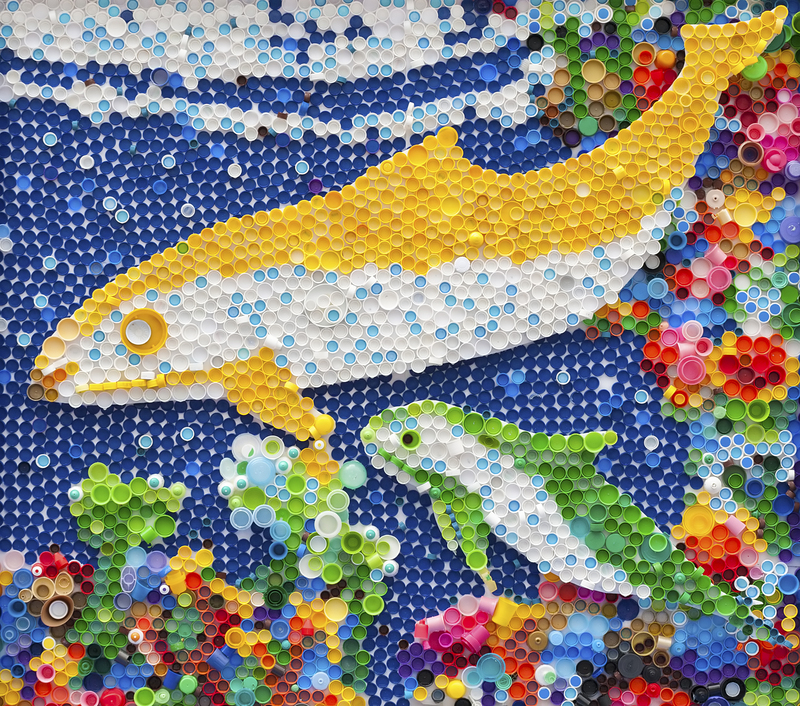Protect the Planet by Disposing of PPE Waste Properly
Over the past few years, the world has witnessed an unprecedented surge in the use of personal protective equipment (PPE), including face masks, gloves, gowns, and face shields. While these items have played a crucial role in safeguarding public health, their improper disposal has created a growing environmental challenge. If left unchecked, PPE waste not only pollutes our planet but also threatens wildlife and human health. In this comprehensive article, we delve deep into how you can protect the planet by disposing of PPE waste properly, offering practical tips, eco-friendly alternatives, and valuable insights to help guide your actions.
Understanding the Impact of Improper PPE Waste Disposal
The global pandemic has led to billions of disposable masks and gloves being used daily. Unfortunately, a significant portion of this PPE waste finds its way into landfills, water bodies, and even city streets, causing multiple environmental problems. Proper PPE waste disposal is now more crucial than ever.
Environmental Hazards of PPE Waste
- Plastic Pollution: Most single-use PPEs are made from durable plastics like polypropylene and polyethylene, which take hundreds of years to decompose. Improperly disposed masks and gloves often end up as microplastics in oceans and soils.
- Threat to Wildlife: Animals can mistake PPE for food or become entangled in elastic straps, leading to injuries, starvation, or even death. Numerous images have surfaced of birds, fish, and marine creatures trapped by discarded PPE.
- Spread of Disease: Used PPE can harbor pathogens, increasing the risk of disease transmission to sanitation workers, waste pickers, and the public if not handled correctly.
Long-Term Environmental Impacts
PPE pollution doesn't just mar natural landscapes; it also disrupts ecosystems. When PPE breaks down into microplastics, it enters food chains, potentially affecting animal and human health. Moreover, toxins released as plastics degrade can contaminate soil and water, threatening agriculture and potable water sources.

Proper Methods for Disposing PPE Waste
Responsible PPE waste management starts at the user level. Here are the most effective ways to dispose of PPE waste properly and protect the planet:
Step-by-Step Guide to Safely Disposing PPE
- Remove Carefully: When finished with your mask or gloves, remove them by the straps. Avoid touching the contaminated outer surfaces.
- Contain the Waste: Place used PPE in a separate, durable bag or bin instead of disposing of it loosely. This reduces the risk of spreading germs and litter.
- Seal and Label: Tie securely and, if possible, label the bag as "PPE waste" to alert waste handlers.
- Dispose in Designated Bin: Dispose of PPE waste in general rubbish--the black bin--unless your community provides specific PPE or hazardous waste bins.
- Wash Your Hands: Always wash your hands thoroughly with soap and water after handling used PPE.
Do Not Flush PPE Down the Toilet
Never flush masks, gloves, or wipes down the toilet. These items can clog sewage systems, causing backups and polluting water bodies. Furthermore, flushed PPE can escape treatment plants and contribute to river and ocean pollution.
Guidelines for Workplace and Public Spaces
- Install dedicated PPE disposal bins in entrances, exits, and high-traffic areas.
- Inform staff and visitors about the proper disposal protocols via notices and training.
- Regularly empty PPE bins to prevent overflow and contamination.
The Role of Recycling in PPE Waste Management
While most single-use PPE cannot be traditionally recycled due to contamination risks, innovative solutions are emerging to tackle this problem. Understanding how to properly dispose of protective equipment waste means recognizing what can and cannot be recycled--and utilizing the latest programs.
Specialized PPE Recycling Programs
- TerraCycle and Similar Services: Some organizations offer collection boxes for used PPE, which are then processed in specialized facilities. They turn PPE waste into materials for park benches, flooring, and other products.
- Hospital Initiatives: Certain hospitals separate and sanitize PPE, recycling eligible items as part of their commitment to sustainable operations.
Barriers to Traditional Recycling
Due to biohazard concerns, most local recycling programs do not accept used masks or gloves. Always check with your municipality before placing any PPE in recycling bins. Improper PPE waste disposal in recycling streams can contaminate recyclable materials and pose health threats to workers.
Sustainable Alternatives to Single-Use PPE
Reducing reliance on disposable PPE is an effective way to decrease environmental impact. Whenever possible, opt for sustainable protective gear alternatives:
Reusable PPE Options
- Cloth Masks: Washable and reusable, they significantly reduce waste compared to single-use masks, provided they meet safety standards.
- Reusable Face Shields and Gowns: Many PPE items can now be cleaned and reused without compromising protection.
- Eco-friendly Materials: Some companies manufacture PPE from biodegradable materials, offering a more sustainable end-of-life solution.
Best Practices for Using Reusable PPE
- Clean Thoroughly: Wash cloth masks and reusable gear after each use with soap and hot water.
- Follow Manufacturer's Instructions: Use and care for reusable PPE according to product guidelines to ensure ongoing safety and effectiveness.
- Replace When Worn: Discontinue use if reusable PPE becomes damaged or loses its protective qualities.
Community Action: How to Encourage Responsible PPE Waste Disposal
Engaging communities is vital in combating PPE pollution. Here's how you can raise awareness and promote proper PPE waste disposal in your area:
For Individuals
- Lead by Example: Dispose of your PPE responsibly and explain your actions to friends and family.
- Report Illegal Littering: If you see improper PPE waste disposal, notify local authorities or community organizations.
- Organize Cleanups: Take part in local river, park, and roadside cleanup events that specifically target PPE waste.
For Businesses
- Provide Adequate Disposal Bins: Ensure there are enough labeled waste containers for PPE at your premises.
- Educate Employees: Conduct training sessions on best practices for PPE usage and disposal.
- Partner with Recycling Initiatives: Work with organizations that offer PPE recycling to further reduce your environmental footprint.
Government and Policy Initiatives
Solutions to the PPE waste crisis also require systemic changes. Governments and policymakers can protect the planet by enforcing stricter regulations on PPE production, distribution, and disposal:
- Mandate Clear Labelling: Ensure all PPE packaging clearly states disposal instructions.
- Support Infrastructure: Invest in municipal waste management to handle increased PPE waste volumes efficiently.
- Encourage Innovation: Fund research into biodegradable PPE materials and advanced recycling processes.
- Raise Public Awareness: Launch information campaigns about the environmental impact of PPE and proper disposal methods.
Global Efforts and Success Stories
Around the world, several countries and organizations are stepping up to address the growing menace of PPE waste:
- Italy: Launched nationwide mask recycling initiatives partnered with private firms to turn masks into construction materials.
- Japan: Research institutes have developed biodegradable mask prototypes that safely decompose after use.
- UK: Major hospitals and clinics have adopted the use of closed-loop PPE collection and recycling systems to minimize landfill contributions.
What Can We Learn?
These success stories show that with the right mix of technology, public will, and responsible behavior, it's possible to reduce PPE-related environmental impacts and protect the planet through proper PPE waste disposal.
Frequently Asked Questions About PPE Waste Disposal
- Can I recycle disposable masks and gloves at home?
- No, most household recycling programs do not accept used PPE due to contamination risks. Always use appropriate PPE waste bins or general rubbish for safe disposal.
- What should I do if I see masks or gloves littered in public spaces?
- If safe, use gloves to pick up and dispose of them in the trash, and always sanitize your hands afterward. Alternatively, notify community clean-up groups or authorities.
- Are biodegradable masks effective?
- Biodegradable masks provide similar protection levels to traditional masks when manufactured to required standards. Always check for certifications or safety ratings before use.

Your Role in PPE Waste Management: Every Action Counts
The global PPE waste problem can seem overwhelming, but each individual has the power to make a positive impact. Whenever you use a mask, glove, or other protective item, remember that your choices matter. Dispose of PPE responsibly, support sustainable alternatives, and encourage others to do the same. Collectively, these actions can substantially reduce pollution, protect ecosystems, and foster a healthier planet for future generations.
Protecting the planet is as much about our daily habits as it is about policy and innovation. By disposing of PPE waste properly, you are taking an essential step towards environmental stewardship. Make it your mission to spread the message and be part of the solution!
Key Takeaways: How to Protect the Planet by Disposing of PPE Waste Properly
- Never litter or flush PPE items down toilets or drains.
- Use designated waste bins or special disposal bags for used PPE.
- Consider reusable or biodegradable PPE alternatives when possible.
- Encourage local businesses, governments, and your community to develop and follow PPE waste protocols.
- Stay informed and spread awareness about the importance of proper PPE waste management.
Protect the planet by disposing of PPE waste properly--your mindful action today ensures a cleaner, safer environment for generations to come.